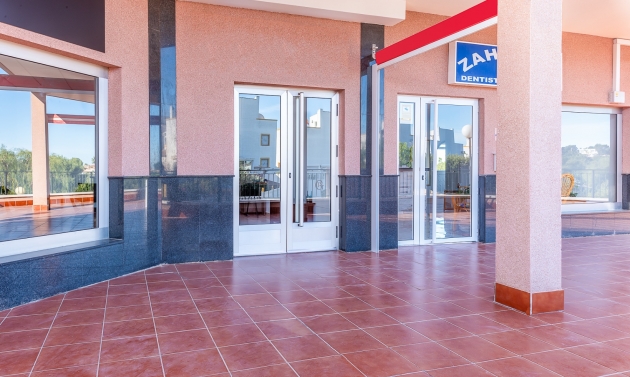How to start living abroad? Maybe in Spain?

Wondering what steps are needed to move to Spain? Whether you prefer city life, the countryside, beach towns or somewhere in the mountains, Spain has a dream location for everyone. Here we summarise a few important points to know if you're thinking of moving to Spain.
Wondering how to move to sunny Spain and how hard it actually is? This will depend on your specific circumstances and where you are originally from. EU citizens or permanent residents of an EU member state will find the process of moving to Spain relatively easy. And this is also true for us, citizens of the Czech Republic.
If your dream is to live in the land of churros, tapas and tinto de verano, this guide will give you everything you need to know when moving to Spain; from how to get a visa, to navigating the housing market, finding good schools, opening a bank account and filing your tax return.
Not surprisingly, Spain is a favourite for many people. There's more to it than just sunny weather, wide beaches and good food. Work-life balance and general quality of life are just some of the benefits of moving to Spain. Spaniards have very clear priorities, family, friends, socialising and relaxation are top of the list. A relaxed work culture, excellent international schools and free quality public healthcare are just some of the benefits of this incredible southern European country.
MOVING TO SPAIN
The process of moving to Spain can be stress-free if you follow the procedures. You will have many alternatives to send your household goods to Spain. Spain is one of the best transport hubs in the world due to its convenient geographical location. Whether you plan to ship your belongings by air, train, sea or land, you should have many options to choose from. From the Czech Republic, it's probably no problem.
On arrival, your belongings will have to pass through Spanish customs, either at the port or at the airport. If you have nothing to declare, the process is easy, but if you are carrying any items that are prohibited or restricted by customs, you will need to declare them. For example, if you have medicines that fall under the category of controlled drugs set by Spanish customs, you will need to apply for an import licence at the Spanish consulate of your country of origin. As a general rule, it is advisable to bring only the items in the quantities allowed and to take all the necessary permits with you to avoid border obstacles. Be aware that quantities vary greatly depending on whether you are coming from a non-EU or EU country. Again, the Czech Republic is in the EU so everything should be easy.
Even moving to Spain with pets is relatively easy. There are not many compulsory vaccinations. All pets must show proof of a recent rabies vaccination, regardless of where you come from. As dogs, cats and ferrets under three months of age are not vaccinated against rabies, they are not allowed into the country, so keep this in mind when planning your move.
VISAS AND WORK PERMITS
Wondering how to get a visa and work permit for Spain? This section contains everything you need to know about the visa application process and requirements for moving to Spain.
As an EU citizen, you can travel and live freely in the Schengen area for three months. After this period, you will need to register with the local authorities. For non-EU citizens, the process is more complicated. To enter Spain, they need a short-term Schengen visa, which is valid for 90 days. If you plan to stay longer, you will need to apply for a long-stay visa at the same time.
To apply for a Spanish visa, you will need to meet certain requirements such as proof of sufficient funds, a clean criminal record and a certificate of general good health. As a highly skilled worker, you may even be issued a European Blue Card, which is the equivalent of a Green Card in the United States. Buying a property worth over €500,000 ($590,000) in Spain will also give you a two-year visa, which you will then need to renew every five years.
Visa prices vary depending on your nationality as well as the type of visa you apply for. Generally speaking, US and Canadian citizens have the highest visa costs, ranging from €100 to €1000 (US$120-1180) depending on the type of visa. Other nationalities pay less, with costs ranging from €70 to €150 (US$82-177).
LIVING IN SPAIN
Renting accommodation in Spain can be tricky. The rental housing market requires you to jump through many bureaucratic hoops. Interestingly, buying a property as a foreigner can be even easier than renting. And finding a home in Spain is something we're happy to help you with. We have many beautiful properties on offer.
The good news is that there are no restrictions on property ownership for foreigners in Spain. Buying a house worth over €500,000 ($590,000) will also get you a Golden Visa, which allows you to live in Spain.
Visa prices vary depending on your nationality and the type of visa you are applying for. Generally speaking, US and Canadian citizens have the highest visa costs, ranging from €100 to €1000 ($120-$1180) depending on the type of visa. Other nationalities pay less, with costs ranging from €70 to €150 (US$82-177).
If you want to rent a house or apartment, keep in mind a basic rule of living in Spain: never accept a verbal agreement and require a written contract. In general, Spanish law is on the side of tenants - it protects their rights. However, it is not uncommon for landlords to ask you to provide proof of sufficient funds or to have a guarantor sign the contract.
Rental prices vary greatly depending on where you want to live. Big cities like Barcelona and Madrid are naturally much more expensive than places like Valencia or Bilbao.
HEALTHCARE IN SPAIN
In this section, we'll stop with the Spanish healthcare system and health insurance.
Public healthcare in Spain is free and includes primary care services such as family medicine, paediatrics, nursing, midwives and physiotherapists, as well as emergency and diagnostic preventive services. Adult dental care, corrective eyewear, and some orthopedic services and pharmaceuticals are not free. Costs will vary depending on your income.
If you are a legal resident and working in Spain, you are entitled to public health care and will need to register with your local social security office to get your health card (tarjeta sanitaria individual). Keep in mind that you will need to show this card at every visit to the doctor. If you do not qualify for any type of public health care, you can opt for a minimum payment system of €60 ($70) per month.
BANKS AND TAXES IN SPAIN
Opening a bank account in Spain is relatively simple. The best Spanish banks offer both resident and non-resident bank accounts. Once you have obtained your residence permit, you can transfer it to a resident account.
Spanish residents and non-residents must file a tax return at the end of each tax year. If you are a non-resident, you only have to pay tax on your Spanish income unless you have worked in Spain for more than 183 days in the year. Wondering how much tax you pay in Spain? It depends on the type of tax. For example, income tax ranges from 19% to 45% depending on how much you earn.
EDUCATION IN SPAIN
You may want to consider enrolling your children in international schools if you and your family move to Spain. The school system in Spain consists of public, semi-private and private schools. The Spanish school system is good, with international schools in the country having high national and international ratings. These schools usually allow children to follow an internationally recognised curriculum with English as the primary language of instruction and Spanish as a foreign language.
The education system in Spain has some peculiarities. Secondary school is divided into three compulsory years and two additional optional years called Bachillerato. School is compulsory only until the age of 16, three years of compulsory secondary school. However, most Spanish students want to study at university and therefore need Bachillerato.
LIVING IN SPAIN
What is it like to live in Spain? Get to know the culture and lifestyle before you move... The country is generally friendly and open to foreigners. Still, it's good to know what to expect before you live there.
Living in Spain has many pros and cons. The weather, the food and the nature are amazing. The health system is top notch and the locals are friendly. As for the cons, Spain has a high unemployment rate, and if you don't speak Spanish, the language barrier will slow down the process of settling in.
The cost of living in Spain is not as high as in other large EU countries. In general, prices in south-western Europe tend to be cheaper than in central or northern Europe.
Spain places great emphasis on work-life balance. Although the concept of the siesta is outdated in the big cities, people like to take long lunch breaks to relax. Eating in the subway or at a desk at work is highly frowned upon because Spaniards attach great importance to food.
We will be happy to help you. Write to us.




















